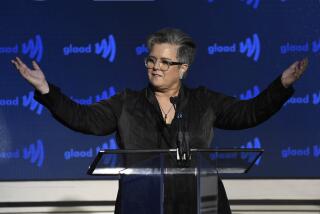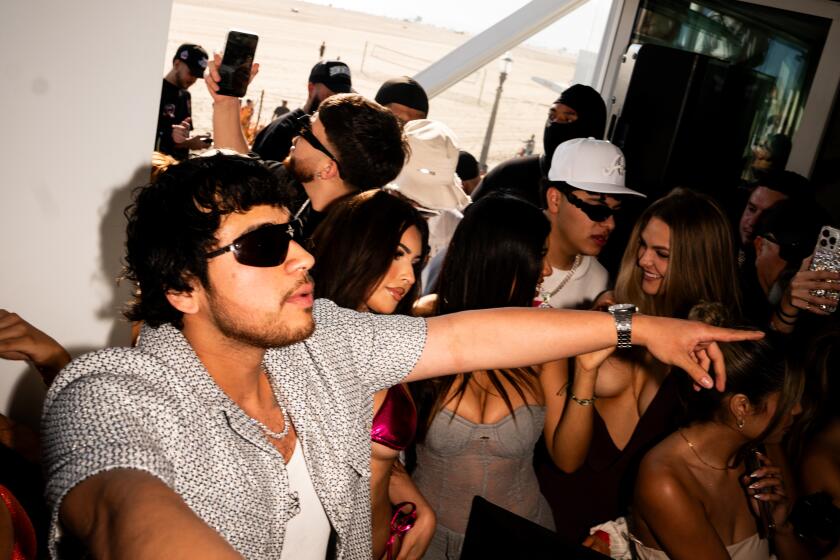Her role on ‘SMILF’ offers Rosie O’Donnell some relief from a hellish year
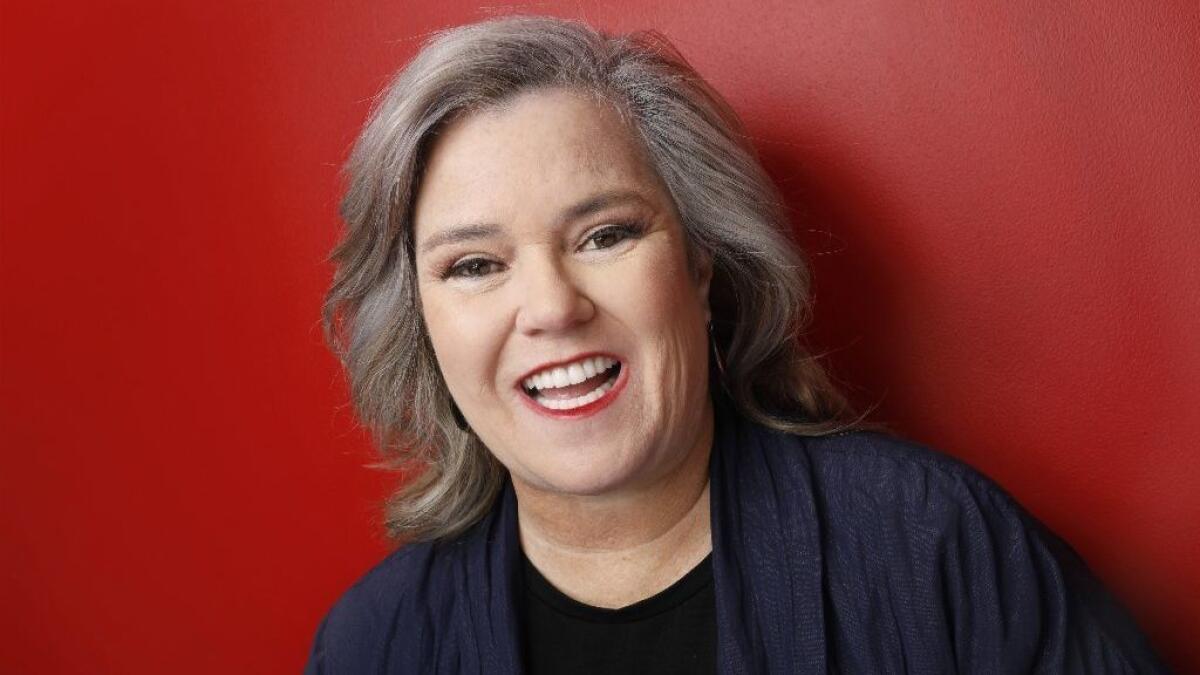
Rosie O’Donnell is a hot-button name for many, but everyone has a different way of seeing her. She’s a stand-up comedy pioneer from the 1990s; she’s the openhearted but politically charged host of “The Rosie O’Donnell Show,” which ran from 1996-2002 and earned her 12 Daytime Emmys; she’s Madonna’s awesome BFF in 1992’s “A League of Their Own.” Or she’s the devil incarnate, if you happen to be the current president of the United States, who’s been feuding with her for more than a decade. (O’Donnell returns the sentiment.)
But while speaking with The Envelope, Rosie O’Donnell is a woman in a new phase of her career — as Grandma Tutu on Showtime’s grounded-in-reality comedy “SMILF,” a series created by and starring Frankie Shaw as a financially struggling single mother. O’Donnell plays Shaw’s mother, a role that in many ways lets her just be herself.
You’ve had a pretty tough year or so. How are you doing?
Not good. This was a very difficult year, yes. My daughter was diagnosed with autism. We were shooting the pilot for this show [“SMILF”] on election day. … And he won and it was like the ground fell out from under me. It’s terrifying.
WATCH: Video Q&A’s from this season’s hottest contenders »
Has playing Tutu on “SMILF” helped?
Totally. While we were filming, my ex-wife (Michelle Rounds) killed herself. That was included in the year of hell. I got the call and said to Frankie, “You’re not going to believe this.” It was the most wonderful place to be; she really is exceptional about being open, and I think artistically she’s a genius.
“SMILF” addresses topics with an honesty rarely seen on TV. How much does that frankness surprise you?
At the premiere, I’d forgotten all the sex in the pilot; I’m not there on those days. I’m doing a wonderful show with my elderly husband and beautiful, troubled daughter, the grandbaby and my bipolar, unmedicated PTSD trauma. That’s my whole show right there [not Frankie’s scenes]. So when I did see the pilot, I was, like, “Oh, my God.”
What was so surprising?
When you’re 56, it’s a whole different way that you grew up feeling about sex and what access you had to sex. When I was Frankie’s age we had to go to 7-Eleven and get the Penthouse Forum letters, that’s where we’d get sexual stimulation. Kids today are bombarded from the time they touch a computer, which is pretty much right after birth. It’s terrifying to people our age.
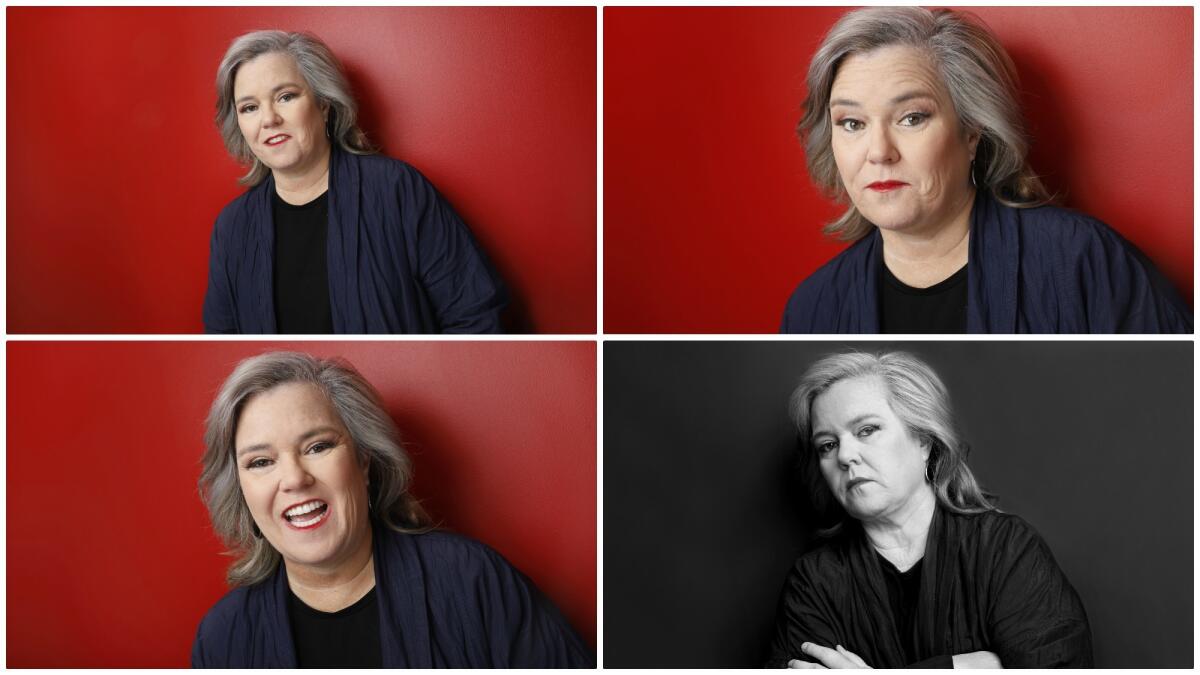
Were you like Frankie as a kid?
No way! My mother died when I was 10, so I really craved the adult attention. We were, like, five kids and looked like we weren’t taken care of, because we weren’t. Public school teachers came in and parented us. The woman I got for algebra in seventh grade became like a second mother to me. She took me to the gynecologist when I got old enough; she was the first person to say “I love you” to me.
I didn’t have sex until I was much older, and I had so much body shame. [The frankness] on this show is what we worked for as feminists and women — and I’m inspired as well as terrified.
About your own sex scene; how comfortable or uncomfortable was that to shoot?
Not as uncomfortable as the day before, when I had the “getting ready for the sex scene.” The next day, the actor playing my boyfriend was so terrified and shaky — and I’m so codependent that I wasn’t afraid because I was taking care of him. I was nurturing him. It wasn’t as bad or as scary as I thought.
Over the years you’ve railed against gun violence, you were trying to warn people about Trump long before he got into politics, you were critical about the Iraq war — yet here we are today, as if nobody ever listened. Do you ever feel like Cassandra of Greek mythology?
I feel more like I’m ahead of the curve. I know all of this is true. So I just gotta wait. It’s hard to believe that it’s gone this far, and every day feels like the day something is going to change.
As a person, are you calmer and more at peace these days?
Yes. Well, I still get enraged at injustice. I do as much as I can to drop grace on people who have suffered a lot. I feel compelled to do it. When you grow up poor, middle-class … you’re always one of those people. That’s why I look at Donald Trump and think, “You’re a schmucky kid who grew up on 73rd and Ditmars Boulevard in a townhouse like everyone else, then your father became a slumlord millionaire.” He’s acting like he’s royalty, and he’s just a carnival barker, con man. It’s so easy to see through that.
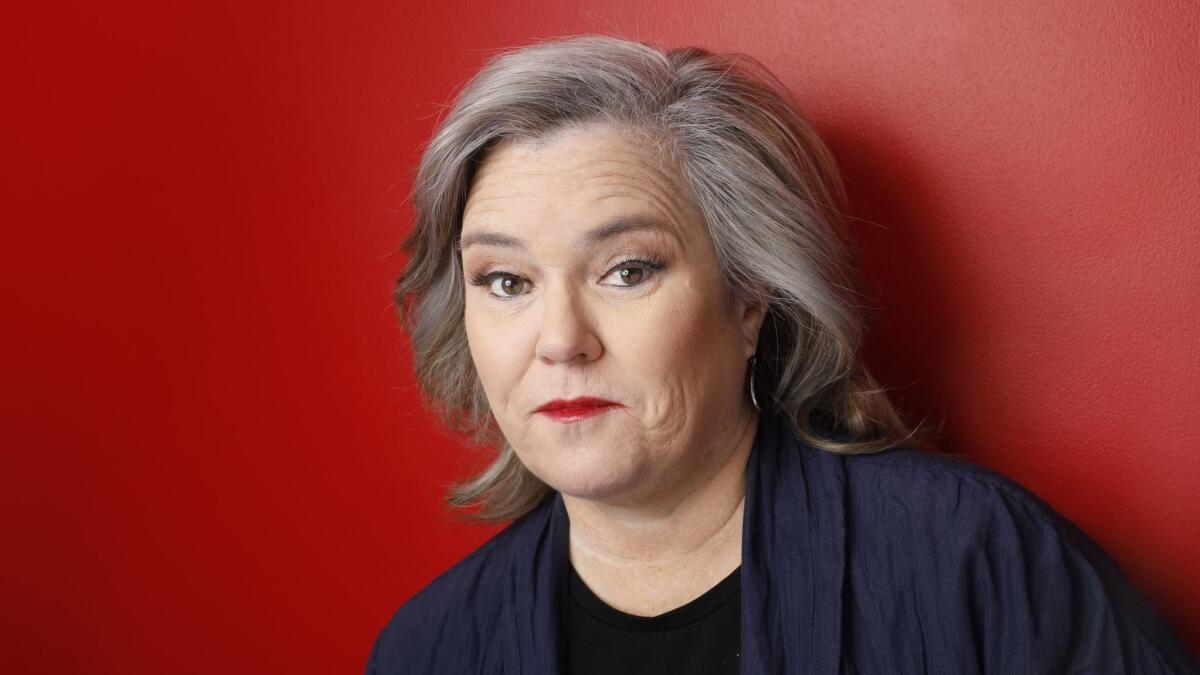
More to Read
From the Oscars to the Emmys.
Get the Envelope newsletter for exclusive awards season coverage, behind-the-scenes stories from the Envelope podcast and columnist Glenn Whipp’s must-read analysis.
You may occasionally receive promotional content from the Los Angeles Times.
